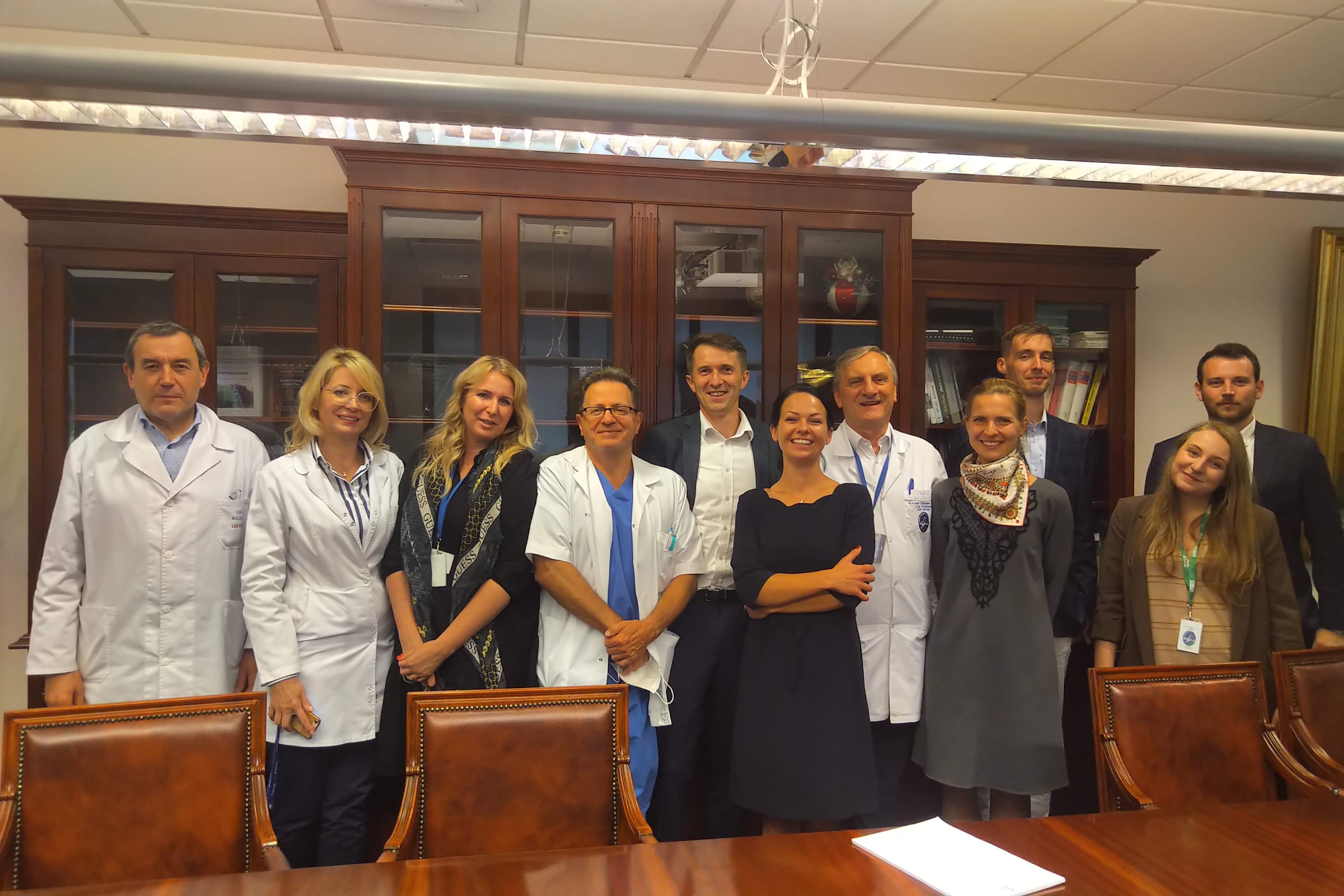Development of an innovative diagnostic test to assess the course of COVID-19 and post-disease complications, with the use of genome-wide analysis
Thanks to the project, as well as established international cooperation with HGI (The COVID-19 Host Genetics Initiative) and HGE (The COVID Human Genetic Effort) consortia and access to much more data from around the world, there was created a set of genotypes that were most strongly associated with the severe course of COVID-19 disease

 Project title
Project title
Development of an innovative diagnostic test to assess the course of COVID-19 and post-disease complications, with the use of genome-wide analysis
 Name of Beneficiary/Beneficiaries
Name of Beneficiary/Beneficiaries
Central Clinical Hospital of the Ministry of Interior and Administration in Warsaw
 Name of programme
Name of programme
National Programmes
 Competition
Competition
Support for single-name hospitals in the fight against the spread of SARS-CoV-2 virus infection and in the treatment for COVID-19 patients
 Project value
Project value
PLN 11 979 750.00
 Funding value
Funding value
PLN 11 979 750.00
 Project delivery period
Project delivery period
from 1 August 2020 till 31 July 2021
Meet our team

View the results of our work
In addition to the genetic test enabling quick identification of patients with a higher risk of serious illness from COVID-19, referred to below, the first Polish database of genetic variants was created, which is the world's largest database of genetic variants for one homogeneous population. The database is available online for non-commercial purposes, and the dedicated website https://naszegenomy.pl/ contains interesting facts from the project. It includes information on not only the variability resulting from single-point mutations, but also on large structural changes. The collected data was analysed for the amount and types of variabilities, including single nucleotide polymorphisms (SNPs), small insertions / deletions, as well as structural variants.
The priority for which the variant database was created is the medical purpose, but the data can be used in such research as: comparative and epidemiological analyses (how often is a given pathogenic variant present in a given population?), In genealogical and anthropological analyses, and in medical research (personalized medicine, pharmacogenomics). The database is primarily intended to serve scientists, clinicians and diagnosticians as a reference for the correct interpretation of genetic test results.
Thanks to the project, it will be possible to compare our population with other populations, e.g. in terms of the incidence of various diseases. We hope that sharing data and joint analysis will become a standard in Poland, as is already the case in many centres and countries around the world.
What problem is addressed by the project?
Thanks to the project, as well as established international cooperation with HGI (The COVID-19 Host Genetics Initiative) and HGE (The COVID Human Genetic Effort) consortia and access to much more data from around the world, there was created a set of genotypes that were most strongly associated with the severe course of COVID-19 disease. As a result, it was possible to quickly create and develop a new and inexpensive diagnostic test, using the analysis of the indicated genetic variants, with the help of standard PCR equipment - such a thermocycler is available in most diagnostic laboratories.
Who uses the project results?
The test created in the project is intended especially for use in hospital wards of the ICU type. It can be used to identify people with an increased likelihood of being severely affected by the disease, and to rapidly test already infected people so as to predict the course of COVID-19 illness. This is another tool which can provide a clue for clinicians, especially in situations of high occupancy and low availability of beds, also enabling rapid testing of medical staff to better protect people at risk of becoming severely ill.
What was the greatest challenge during project implementation?
We devoted a huge amount of time to talk to volunteers, to qualify them for further stages of the project. We wanted to talk to everyone who was willing, not to leave anyone with unanswered questions or with doubts. As scientists, we felt obliged to provide reliable information and to gen engaged in conversations. And there were surprisingly many volunteers who applied to participate in the project, often not for only themselves, but for entire families, from all over Poland. Some, at their own expense, travelled many kilometres to the collection point. Several thousand people applied, many more than we were able to include in the research. We set up a special website and FB profile, where we constantly posted information about COVID-19, about new scientific reports or translations of abstracts of new publications that appeared on the subject of SARS-CoV-2.
Our advice for other applicants
At the beginning, we had some misgivings about the need to involve a large number of participants in the research. We thought that Poles would not be willing to donate their genomes for research. It turned out that we were completely wrong - now we know that we are a very open nation that gets eagerly involved in the development of science and willingly participates in research. We also learned how to use social media channels for research purposes, and how to share reliable knowledge with others. We will certainly get involved in popularizing science when undertaking future projects.